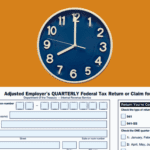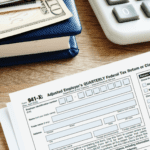Some people would rather face root canal surgery than an IRS audit. According to ABC News, the IRS audited 1.6 million Americans in 2011 alone. This means that about 1% of all Americans get audited. If you are audited, rest assured you are in good company. Three-quarters of IRS audits are handled without having to meet face to face with an IRS employee. The rest are usually handled by mail.
60% of individuals who get audited choose to hire a tax attorney for audit representation or audit defense service, notes ABC News. Some tax preparers will also perform audit representation services, including the popular tax software TurboTax. It is generally best to hire a tax attorney rather than an accountant or tax preparer because tax lawyers focus on federal and state tax laws for individuals and businesses. They can also help you answer questions from the IRS without putting your foot in your mouth.
Audit Triggers
There is tremendous pressure on the IRS to collect every penny that they are owed. Taxes owed but left unreported are estimated by the IRS to be $345 billion. There are specific things the IRS looks for. These include:
- Not filing taxes on time
- Filing without including all pertinent documents like bank account statements, W-2s, 1099s, receipts, cancelled checks from charities, etc…
- Taxpayers who present a long list of deductions, including a home office, medical services and high-ticket electronics
- People who do not sign their returns
- Small businesses that are not incorporated
- People who deduct legal expenses without any explanation as to why the legal expenses were necessary for the taxpayer’s ability to make money
- People who file a Form 5213 “Election To Postpone Determination as To Whether the Presumption Applies That an Activity Is Engaged in for Profit.” Although individuals may avoid an audit for few years, the audit will inevitably occur.
Types of Audits
There are two main types of audits – paper and in-person. Paper audits, also called correspondence audits, are the most common. These are sent out for minor errors such as:
- Forgetting to sign your tax returns
- Entering the wrong number for your income which does match your W-2
- If figures from banks do not exactly match up with your tax return.
These can often be settled through the mail and without hiring a tax attorney or meeting with an IRS employee.
In-person or field audits are more dreaded because they indicate that there is a serious discrepancy between what you filed and what information the IRS has on you. The IRS employee may have to come to your office or where the taxes were prepared in order to go over all of your financial records for the year or years in question.
Make an Appointment
You will receive notice by regular mail that you are being audited. If it’s to be a field audit, you will need to call the IRS office number provided. There is a strict deadline for making an appointment. Even if you do not have all of your financial information available, make an appointment before the deadline.
Usually the IRS gives you at least four weeks to gather your financial records together. This is more than enough time to get in contact with a tax attorney, who will then make a list of items you need to find before the audit. They should be grouped together by category first and then by date. Paperwork you need includes:
- Receipts
- Automobile log if you use a car for work
- Cancelled checks
- Proof for every business-related expense
- Bank statements
- Information about your stock portfolio
- Records about loans and how much has been paid off
- Mortgage records
- Proof of payments such as W2s or 1099s
If you can’t find the document, be honest and admit this to your tax attorney. Sloppy record keeping is as bad in the eyes of the IRS as willfully trying to cheat on your taxes.
The Audit
You may need to meet with the IRS more than once during the course of your audit. If you have a home or small business, the IRS may need to look at the set up. You do have the right to have the meetings recorded. However, you need to submit this request in writing to the IRS at least 10 days before your appointment. Ask your tax lawyer if recording the appointment is necessary.
The audit itself is like a trial only it’s held in an office with far fewer people and no robes. Treat the audit like a trial. Be polite. Wear business attire and be well-groomed. Do not wear your worst clothes in the hopes that the IRS will think that you are too poor to buy good clothes. It will make you look as if you are not taking the process seriously and will be considered a mark of disrespect.
You do have the right to complain about overly aggressive IRS workers. This is another advantage of having a tax attorney. He or she can point out whenever an IRS worker is out of line. You do have the right to complain to that IRS worker’s supervisor.
The Final Report
The audit process is not over during the audit appointment. It’s only over when the IRS mails you its final audit report. It lists any extra taxes or fees you must pay, if necessary. If you like the report, be sure to sign it.
You have the right to an audit appeal, but you have a short time to lodge an appeal. Let your tax attorney know right away if you want to appeal.






 Steven N. Klitzner, P.A. is a tax attorney based in Miami, Florida. He has been practicing tax law for over 40 years, and currently holds a 10.0 rating by Avvo. Mr. Klitzner was appointed to the IRS Service Advisory Council in 2021 and is...
Steven N. Klitzner, P.A. is a tax attorney based in Miami, Florida. He has been practicing tax law for over 40 years, and currently holds a 10.0 rating by Avvo. Mr. Klitzner was appointed to the IRS Service Advisory Council in 2021 and is... 





